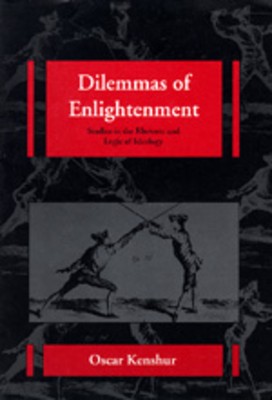
- We will send in 10–14 business days.
- Author: Oscar Kenshur
- Publisher: University of California Press
- ISBN-10: 0520081552
- ISBN-13: 9780520081550
- Format: 15.5 x 24.7 x 2.4 cm, hardcover
- Language: English
- SAVE -10% with code: EXTRA
Reviews
Description
Oscar Kenshur combines trenchant analyses of important early-modern texts with a powerful critique of postmodern theories of ideology. He thereby contributes both to our understanding of Enlightenment thought and to contemporary debates about cultural studies and critical theory.
While striving to resolve "dilemmas" occasioned by conflicting intellectual and political commitments, seventeenth- and eighteenth-century writers often relied upon ideas originally used by their enemies to support very different claims. Thus, they engaged in what Kenshur calls "intellectual co-optation." In exploring the ways in which Dryden, Bayle, Voltaire, Johnson, and others used this technique, Kenshur presents a historical landscape distinctly different from the one constructed by much contemporary theory.
EXTRA 10 % discount with code: EXTRA
The promotion ends in 17d.22:50:16
The discount code is valid when purchasing from 10 €. Discounts do not stack.
- Author: Oscar Kenshur
- Publisher: University of California Press
- ISBN-10: 0520081552
- ISBN-13: 9780520081550
- Format: 15.5 x 24.7 x 2.4 cm, hardcover
- Language: English English
Oscar Kenshur combines trenchant analyses of important early-modern texts with a powerful critique of postmodern theories of ideology. He thereby contributes both to our understanding of Enlightenment thought and to contemporary debates about cultural studies and critical theory.
While striving to resolve "dilemmas" occasioned by conflicting intellectual and political commitments, seventeenth- and eighteenth-century writers often relied upon ideas originally used by their enemies to support very different claims. Thus, they engaged in what Kenshur calls "intellectual co-optation." In exploring the ways in which Dryden, Bayle, Voltaire, Johnson, and others used this technique, Kenshur presents a historical landscape distinctly different from the one constructed by much contemporary theory.


Reviews